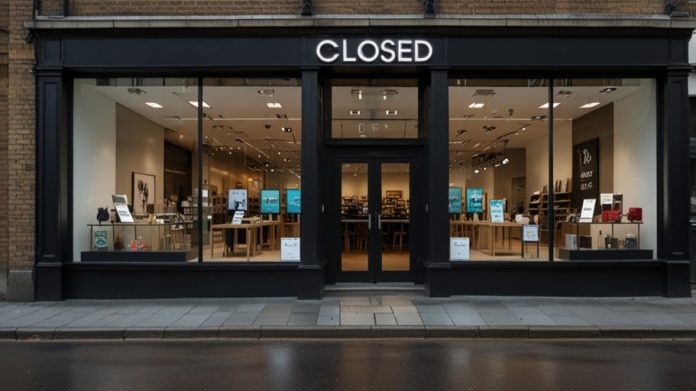A prominent British retailer has ceased online orders after a major cyber attack that has severely damaged consumer confidence. The event, which was disclosed this week, has resulted in a deep fall in stock prices, thus exposing the retail sector’s vulnerabilities. With digital dependence increasing, companies have to deal with the consequences now.
The occurrence of the event has raised the issues of cybersecurity in the entire industry. The heavy reliance of retail outlets on e-commerce makes them more and more exposed to the threats of cyber intrusions. This incident has emphasized the importance of a strong digital infrastructure. It is recommended that businesses put money into top-notch security measures to ensure the protection of consumer data and hence the trust.
The burden of economic force only makes the matter worse, and we can observe how inflation and increasing expenses put pressure on retailers. From recently published reports, it is evident that consumer confidence has gone down,with the greatest impact being tax hikes and uncertainties regarding global trade. It is the shoppers that are the tightening end, which is an incentive for companies to quickly adjust or be ready to lose their market shares.
Despite the dark situation we are in, we can notice certain positives in the picture. Retail sales got up a little in the previous month, as a result of the good weather and the small wage increases. This slight increase brings cautious optimism, indicating that buying goods may level off. Nonetheless, the retailers’ success in this context depends on their ability to adapt quickly amid market instability.
The market trend is currently quite ambiguous. Although significant companies have suffered enormous losses at the start of the month, some of them have recouped a part of the loss. Nevertheless, they are still considerably below their highest point. Investors are being prudent; they are betting on a positive prognosis of the stock market, but they are hedging the investment against the possibility of unfortunate circumstances arising out of global commerce. The stability of the market depends on the creation of a transparent policy and the durability of the economy.
Retailers are reimagining their game plan to reach higher performance. A lot of them are focusing differently on luxury items and personal services just to compensate for increased costs. This strategic move is designed to lure in the choosy buyers who appreciate fine quality and are ready to part with cash, not only in good times. Right now, innovativeness will make you stand out the most.
Several cybersecurity specialists have released a warning that the number of attacks would likely increase. It is high time for retailers to focus on threat detection that is immediate and on their employees’ training to combat the risk. Tech companies are increasingly becoming partners of retail businesses looking for the most modern solutions, safeguarding the businesses, and rebuilding consumer trust at the same time.
Public representatives are in a very tough spot, and they know it. Business leaders are asking for the government to make more transparent rules and partner with the industry to come through the digital transformation. The retail industry would linger over a long time, affecting economic development if no real action is taken. The policy makers carry the cross on their own of having to solve the challenge in a way that will fit the situation.
People, on their own part, are joining in the current trend. Some are even going to the extent of relying on the small and local retailers near them as they feel more comfortable compared to going to crowded shopping malls. This shift, instead of local chains, will give rise to local businesses, and thus, many large-scale but less flexible chains may be left out of the hobby. A big deal is that being flexible is now more of an advantage than amenities.
Afterward, the future of the retail industry will rely on teamwork and sharing between the parties involved. To succeed in the swiftly changing digital environment, retailers, tech providers, and regulators have to form a more coordinated ecosystem. In the upholding of one’s confidence and the subsequent growth in a highly competitive market, cybersecurity and customer engagement were the most crucial decisions to be executed.
Other sectors of the economy also feel the impacts. Changes in trade caused by retail would influence the supply chain, job market, and investment attitude. A quick solution to the current emergency can positively affect the economy, and thus the recovery process will be faster, whereas longer uncertainty will exacerbate economic problems. The situation is of great importance to everyone.
One of the most potent qualities that businesses must show the retail sector in the face of disruptive trends is adaptability. Organizations that decide to abandon the old ways and focus more on security measures would be the fittest survivors. At the moment, the industry is remaining stagnant, and all we can do is hope that it will stay out of the dangers of the unpredictable times of digitalization.



 Bitcoin
Bitcoin  Ethereum
Ethereum  Tether
Tether  XRP
XRP  Solana
Solana  USDC
USDC  Cardano
Cardano  TRON
TRON  Lido Staked Ether
Lido Staked Ether  Avalanche
Avalanche  Toncoin
Toncoin